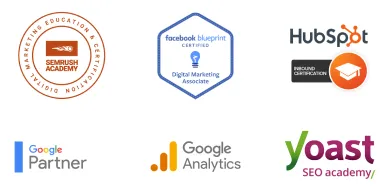TO LEARN IS TO GROW
Learning Center
We do our research and publish our results. Should probably call this the Growing Center.


Yelp Defends “Don’t Ask” Policy By Repeatedly Citing a Study That Directly Contradicts It
Online review juggernaut Yelp made moves earlier in the week to enforce its policy restricting businesses from asking customers to write reviews. Not only is Yelp now penalizing the practice by demoting any offending businesses in Yelp search results, the company has also reportedly taken to leaning on partners like Yext to stop the practice or forfeit access to Yelp’s APIs.
Yelp’s justification for its “don’t ask” policy is so bewildering it would be laughable if it didn’t result in real detriment—to businesses and consumers alike. And the fact that some Yelp partners are now going along with it in deference to Yelp’s market power is, in a word, scary.
Yelp maintains that “soliciting reviews leads to biased content.” The only problem with that statement is that the exact opposite is true. In fact, the very study (by Askalidis and Malthouse) that Yelp repeatedly links to in defense of the policy clearly and demonstrably contradicts Yelp’s claim.
Has Yelp leadership read the study they say supports their policy affecting millions?
What the Evidence Actually Shows
The clear conclusion of the Askalidis and Malthouse study is that soliciting reviews reduces bias because the practice combats a selection bias that prevails when businesses don’t solicit reviews. In particular, the study compares a data set of “web reviews” written by self-motivated reviewers with a set of reviews prompted by email requests sent by the business. It concludes:
[T]he introduction of email prompts does not disturb in any way the existing reviewing population while it incentivizes an entirely new segment of the population to submit a review. We think that this finding should provide motivation to retailers to send email prompts to their verified buyers. The reviews overall will become more representative (since a larger segment of the population will be reviewing), more credible (since the new segment of the population that starts reviewing are all verified buyers) and the ratings overall will increase (since the email ratings are on average higher than web ratings).
Let’s review, then, shall we? According to the study Yelp cites to support its policy against soliciting reviews, such soliciting results in reviews that: 1. are more representative; 2. are more credible; and 3. have higher ratings. “Higher ratings” might seem to indicate “biased content” until you allow what this and prior research (e.g. Anderson and American Express)–not to mention common sense–have already shown: that unhappy customers are more likely than happy customers to share their opinion with others. Soliciting reviews simply corrects for an inherently negative reviewer bias.
Seeking clarity, we reached out to the study’s authors. Dr. Askalidis responded right away via LinkedIn to my request for a “sanity check” on my understanding of the conclusions of his work, which goes beyond the one study:
[Y]ou’re absolutely right, our work demonstrates that soliciting reviews can help make them a little less biased combating social influence and selection biases!
Then Why, Why, Why?
Yelp’s “don’t ask” policy demonstrably achieves the exact opposite of what the company claims it achieves for consumers, resulting in less representative, less credible reviews. Furthermore, the policy suppresses the ratings of businesses on Yelp and hobbles business owners from speaking freely with customers. So why is Yelp doubling-down on a policy that flouts the evidence and hurts everyone? Perhaps the policy hurts everyone… except Yelp?
Yelp benefits when its reviewers inflict enough pain to drive a desperate business owner to buy Yelp’s ad products. (How many times have you heard that story before?) And we as consumers fall for it, too: The wealth of negative ratings on Yelp convinces us–deceptively–that we’re getting the real “dirt” on the companies listed there.
I don’t fault Yelp for its self-interest here. Of course they’re self-interested, that’s business! But Yelp’s claims of “consumer protection” ring both hollow and demonstrably false.
The pragmatist in me will continue to recommend our customers comply with Yelp’s policies, as we have always encouraged them to do. But I hope that Yelp will one day deal more honestly and constructively with both the businesses that pay its bills and the consumers who are its product.

Yelp Defends “Don’t Ask” Policy By Repeatedly Citing a Study That Directly Contradicts It
Online review juggernaut Yelp made moves earlier in the week to enforce its policy restricting businesses from asking customers to write reviews. Not only is Yelp now penalizing the practice by demoting any offending businesses in Yelp search results, the company has also reportedly taken to leaning on partners like Yext to stop the practice or forfeit access to Yelp’s APIs.
Yelp’s justification for its “don’t ask” policy is so bewildering it would be laughable if it didn’t result in real detriment—to businesses and consumers alike. And the fact that some Yelp partners are now going along with it in deference to Yelp’s market power is, in a word, scary.
Yelp maintains that “soliciting reviews leads to biased content.” The only problem with that statement is that the exact opposite is true. In fact, the very study (by Askalidis and Malthouse) that Yelp repeatedly links to in defense of the policy clearly and demonstrably contradicts Yelp’s claim.
Has Yelp leadership read the study they say supports their policy affecting millions?
What the Evidence Actually Shows
The clear conclusion of the Askalidis and Malthouse study is that soliciting reviews reduces bias because the practice combats a selection bias that prevails when businesses don’t solicit reviews. In particular, the study compares a data set of “web reviews” written by self-motivated reviewers with a set of reviews prompted by email requests sent by the business. It concludes:
[T]he introduction of email prompts does not disturb in any way the existing reviewing population while it incentivizes an entirely new segment of the population to submit a review. We think that this finding should provide motivation to retailers to send email prompts to their verified buyers. The reviews overall will become more representative (since a larger segment of the population will be reviewing), more credible (since the new segment of the population that starts reviewing are all verified buyers) and the ratings overall will increase (since the email ratings are on average higher than web ratings).
Let’s review, then, shall we? According to the study Yelp cites to support its policy against soliciting reviews, such soliciting results in reviews that: 1. are more representative; 2. are more credible; and 3. have higher ratings. “Higher ratings” might seem to indicate “biased content” until you allow what this and prior research (e.g. Anderson and American Express)–not to mention common sense–have already shown: that unhappy customers are more likely than happy customers to share their opinion with others. Soliciting reviews simply corrects for an inherently negative reviewer bias.
Seeking clarity, we reached out to the study’s authors. Dr. Askalidis responded right away via LinkedIn to my request for a “sanity check” on my understanding of the conclusions of his work, which goes beyond the one study:
[Y]ou’re absolutely right, our work demonstrates that soliciting reviews can help make them a little less biased combating social influence and selection biases!
Then Why, Why, Why?
Yelp’s “don’t ask” policy demonstrably achieves the exact opposite of what the company claims it achieves for consumers, resulting in less representative, less credible reviews. Furthermore, the policy suppresses the ratings of businesses on Yelp and hobbles business owners from speaking freely with customers. So why is Yelp doubling-down on a policy that flouts the evidence and hurts everyone? Perhaps the policy hurts everyone… except Yelp?
Yelp benefits when its reviewers inflict enough pain to drive a desperate business owner to buy Yelp’s ad products. (How many times have you heard that story before?) And we as consumers fall for it, too: The wealth of negative ratings on Yelp convinces us–deceptively–that we’re getting the real “dirt” on the companies listed there.
I don’t fault Yelp for its self-interest here. Of course they’re self-interested, that’s business! But Yelp’s claims of “consumer protection” ring both hollow and demonstrably false.
The pragmatist in me will continue to recommend our customers comply with Yelp’s policies, as we have always encouraged them to do. But I hope that Yelp will one day deal more honestly and constructively with both the businesses that pay its bills and the consumers who are its product.
Growing Businesses Since 2008
We have helped hundreds of businesses just like yours. Working for or along-side of business owner, managers, staff, or even board of directors, LOJO is ready to be an asset to your business.
Our team has been curated through the years for individual skills, personalities, and capabilities. Our clients put their trust in us to help them grow. We are here to do just that.



Growing Businesses Since 2008
We have helped hundreds of businesses just like yours. Working for or along-side of business owner, managers, staff, or even board of directors, LOJO is ready to be an asset to your business.
Our team has been curated through the years for individual skills, personalities, and capabilities. Our clients put their trust in us to help them grow. We are here to do just that.




Matthew Rogers, President
iProspect Check
After spending several months reviewing multiple proposals from several different companies we engaged LOJO to develop a new website that represents our company effectively. We worked initially with Stephen Platte who helped create the scope of the project. Stephen was knowledgeable and always followed up with me on time and as promised.
He "closed the deal" for LOJO with his professionalism, service orientation and easy going approach. Once we signed the contract we were introduced to Jay Kelly who would be the creative lead for LOJO. This was the most challenging part of the project for my company, as there was no shortage of ideas from our side. Jay managed the project flawlessly, and once we had all agreed to the design, Jay introduced us to Eric.
Eric Lay is one of the founders of LOJO. Eric took the design we had developed and brought it to life. We delivered content as quickly as he requested it. Eric kept the project on task and we responded by exceeding every deadline for content. In turn, once provided, literally not a day went by that Eric didn't add the content and take the next step. In just a few weeks we launched our new website. Eric is a pleasure to work with.
His positive attitude and consultative approach really enhanced the experience and made a big difference for us in the outcome of our project. We would welcome you to visit our website to take a look at the quality work of LOJO. We are very pleased with LOJO and look forward to working with them in the future as we pursue an aggressive SEO strategy."
After spending several months reviewing multiple proposals from several different companies we engaged LOJO to develop a new website that represents our company effectively. We worked initially with Stephen Platte who helped create the scope of the project. Stephen was knowledgeable and always followed up with me on time and as promised.
He "closed the deal" for LOJO with his professionalism, service orientation and easy going approach. Once we signed the contract we were introduced to Jay Kelly who would be the creative lead for LOJO. This was the most challenging part of the project for my company, as there was no shortage of ideas from our side. Jay managed the project flawlessly, and once we had all agreed to the design, Jay introduced us to Eric.
Eric Lay is one of the founders of LOJO. Eric took the design we had developed and brought it to life. We delivered content as quickly as he requested it. Eric kept the project on task and we responded by exceeding every deadline for content. In turn, once provided, literally not a day went by that Eric didn't add the content and take the next step. In just a few weeks we launched our new website. Eric is a pleasure to work with.
His positive attitude and consultative approach really enhanced the experience and made a big difference for us in the outcome of our project. We would welcome you to visit our website to take a look at the quality work of LOJO. We are very pleased with LOJO and look forward to working with them in the future as we pursue an aggressive SEO strategy."

Matthew Rogers, President
iProspect Check
The team at LOJO were wonderful to work with. They are well organized and very patient as we worked through our marketing strategy and developed a well thought out and clear action plan at a reasonable price. We will definitely be back for our future campaign needs."

Jon Crosby, Founder
Dazil

